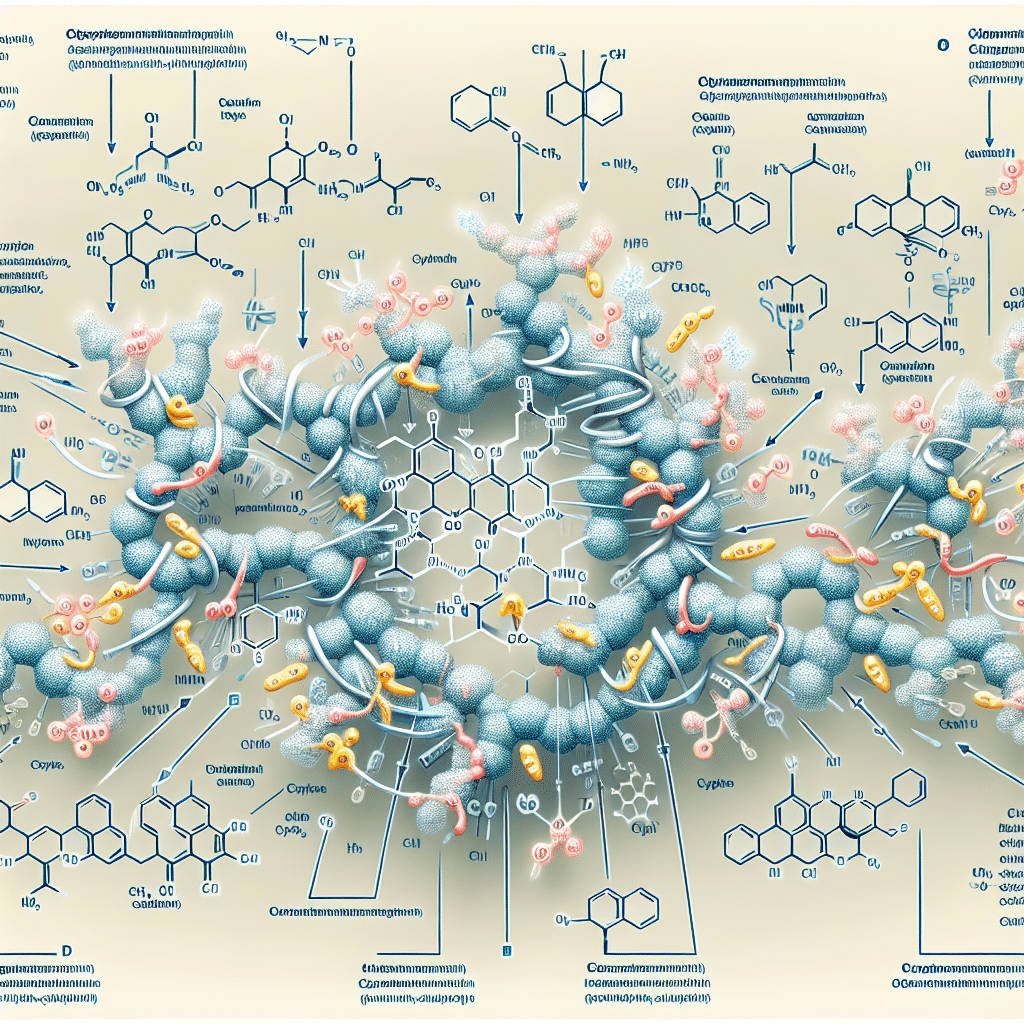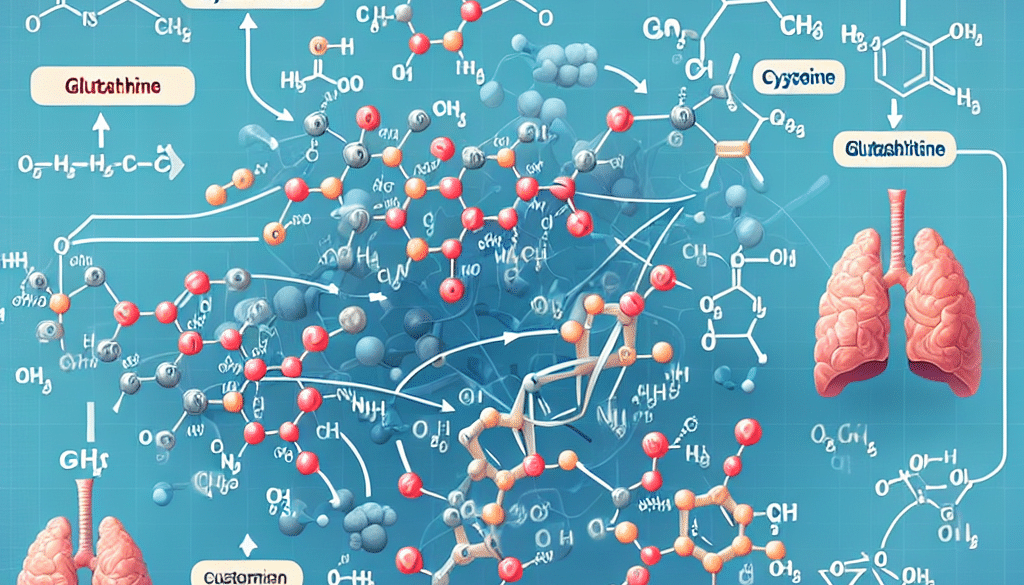Glutathione and Cysteine Relationship: Explained
-
Table of Contents
- Glutathione and Cysteine: Unraveling Their Crucial Relationship
- Understanding Glutathione: The Master Antioxidant
- The Role of Cysteine in Glutathione Synthesis
- Glutathione Synthesis: A Closer Look
- Factors Affecting Cysteine and Glutathione Levels
- Health Benefits of Glutathione and Cysteine
- Supplementation and Boosting Glutathione Levels
- Conclusion: The Synergy of Glutathione and Cysteine
- Enhance Your Health with ETprotein’s Protein Products
Glutathione and Cysteine: Unraveling Their Crucial Relationship

Glutathione and cysteine are two vital components in the body’s defense system, playing a pivotal role in maintaining health and preventing disease. This article delves into the intricate relationship between these two molecules, exploring how they work together to protect and enhance bodily functions. By understanding the connection between glutathione and cysteine, we can better appreciate the importance of these substances in our overall well-being.
Understanding Glutathione: The Master Antioxidant
Glutathione, often referred to as the “master antioxidant,” is a tripeptide composed of three amino acids: cysteine, glutamate, and glycine. It is found in virtually every cell of the body and is essential for a variety of cellular processes. Glutathione’s primary functions include:
- Neutralizing harmful free radicals and reactive oxygen species (ROS)
- Regulating the immune response
- Detoxifying xenobiotics and endogenous compounds
- Assisting in DNA synthesis and repair
- Facilitating the metabolism of fats and proteins
Glutathione exists in two forms within the body: reduced glutathione (GSH) and oxidized glutathione (GSSG). The ratio of GSH to GSSG within cells is often used as an indicator of oxidative stress and overall cellular health.
The Role of Cysteine in Glutathione Synthesis
Cysteine is a sulfur-containing amino acid that is crucial for the synthesis of glutathione. It is the limiting precursor, meaning that the availability of cysteine often determines the rate at which glutathione can be produced. Cysteine can be obtained from dietary sources, such as high-protein foods, or synthesized from the amino acid methionine through a series of biochemical reactions.
The body’s ability to produce cysteine is influenced by factors such as age, health status, and diet. Inadequate cysteine levels can lead to reduced glutathione synthesis, which may compromise the body’s antioxidant defenses and other glutathione-dependent processes.
Glutathione Synthesis: A Closer Look
Glutathione synthesis occurs within the cells through a two-step enzymatic process:
- The first step involves the enzyme glutamate-cysteine ligase (GCL), which catalyzes the formation of gamma-glutamylcysteine from glutamate and cysteine.
- The second step is catalyzed by glutathione synthetase, which adds glycine to gamma-glutamylcysteine to form glutathione.
This process is tightly regulated to ensure that glutathione levels are maintained within an optimal range. Factors that can influence glutathione synthesis include oxidative stress, availability of precursors, and the activity of the synthesizing enzymes.
Factors Affecting Cysteine and Glutathione Levels
Several factors can impact the levels of cysteine and glutathione in the body, including:
- Dietary intake: Consuming foods rich in cysteine, such as poultry, yogurt, eggs, and legumes, can support glutathione synthesis.
- Metabolic demand: Conditions that increase oxidative stress, such as intense exercise or illness, can deplete glutathione stores.
- Genetic factors: Variations in genes related to glutathione metabolism can affect individual levels of glutathione.
- Environmental toxins: Exposure to pollutants and toxins can increase the demand for glutathione, potentially leading to depletion.
Understanding these factors can help individuals and healthcare providers develop strategies to maintain or improve glutathione levels through diet, lifestyle, and supplementation when necessary.
Health Benefits of Glutathione and Cysteine
The health benefits of glutathione and cysteine are vast and include:
- Antioxidant protection: They protect cells from damage caused by free radicals and ROS.
- Immune support: Glutathione enhances the function of immune cells and may help fight infections.
- Detoxification: They assist in the elimination of toxins and carcinogens from the body.
- Anti-aging effects: By reducing oxidative stress, glutathione can help slow the aging process.
- Neuroprotection: Glutathione may protect against neurodegenerative diseases by preventing neuronal damage.
Research continues to uncover new roles for glutathione and cysteine in health and disease, highlighting their importance in maintaining a healthy body.
Supplementation and Boosting Glutathione Levels
While the body can produce glutathione naturally, certain conditions may warrant supplementation. Direct glutathione supplementation can be challenging due to its poor absorption when taken orally. Therefore, supplementing with precursors like N-acetylcysteine (NAC) or whey protein, which are rich in cysteine, can be more effective in boosting glutathione levels.
Other strategies to increase glutathione include:
- Engaging in regular physical activity
- Maintaining a healthy diet with fruits, vegetables, and lean proteins
- Avoiding exposure to environmental toxins
- Managing stress levels
It is important to consult with a healthcare provider before starting any supplementation regimen to ensure it is appropriate for your individual health needs.
Conclusion: The Synergy of Glutathione and Cysteine
The relationship between glutathione and cysteine is a testament to the intricate balance of biochemical processes in the body. Cysteine serves as the cornerstone for glutathione synthesis, while glutathione, in turn, provides a multitude of health benefits through its antioxidant, detoxifying, and immune-boosting properties. By understanding and supporting this relationship, we can take proactive steps to maintain optimal health and prevent disease.
Enhance Your Health with ETprotein’s Protein Products
If you’re looking to support your glutathione levels through high-quality protein intake, consider ETprotein’s range of protein products. Their offerings, including organic rice protein, pea protein, and various seed proteins, provide a rich source of cysteine and other amino acids necessary for glutathione synthesis. With ETprotein’s commitment to non-GMO, allergen-free, and high-purity ingredients, you can trust that you’re getting the best support for your health.
About ETprotein:
ETprotein, a reputable protein and L-(+)-Ergothioneine (EGT) Chinese factory manufacturer and supplier, is renowned for producing, stocking, exporting, and delivering the highest quality organic bulk vegan proteins and L-(+)-Ergothioneine. They include Organic rice protein, clear rice protein, pea protein, clear pea protein, watermelon seed protein, pumpkin seed protein, sunflower seed protein, mung bean protein, peanut protein, and L-(+)-Ergothioneine EGT Pharmaceutical grade, L-(+)-Ergothioneine EGT food grade, L-(+)-Ergothioneine EGT cosmetic grade, L-(+)-Ergothioneine EGT reference grade and L-(+)-Ergothioneine EGT standard. Their offerings, characterized by a neutral taste, non-GMO, allergen-free attributes, with L-(+)-Ergothioneine purity over 98%, 99%, cater to a diverse range of industries. They serve nutraceutical, pharmaceutical, cosmeceutical, veterinary, as well as food and beverage finished product distributors, traders, and manufacturers across Europe, USA, Canada, Australia, Thailand, Japan, Korea, Brazil, and Chile, among others.
ETprotein specialization includes exporting and delivering tailor-made protein powder and finished nutritional supplements. Their extensive product range covers sectors like Food and Beverage, Sports Nutrition, Weight Management, Dietary Supplements, Health and Wellness Products, and Infant Formula, ensuring comprehensive solutions to meet all your protein needs.
As a trusted company by leading global food and beverage brands and Fortune 500 companies, ETprotein reinforces China’s reputation in the global arena. For more information or to sample their products, please contact them and email sales(at)ETprotein.com today.














